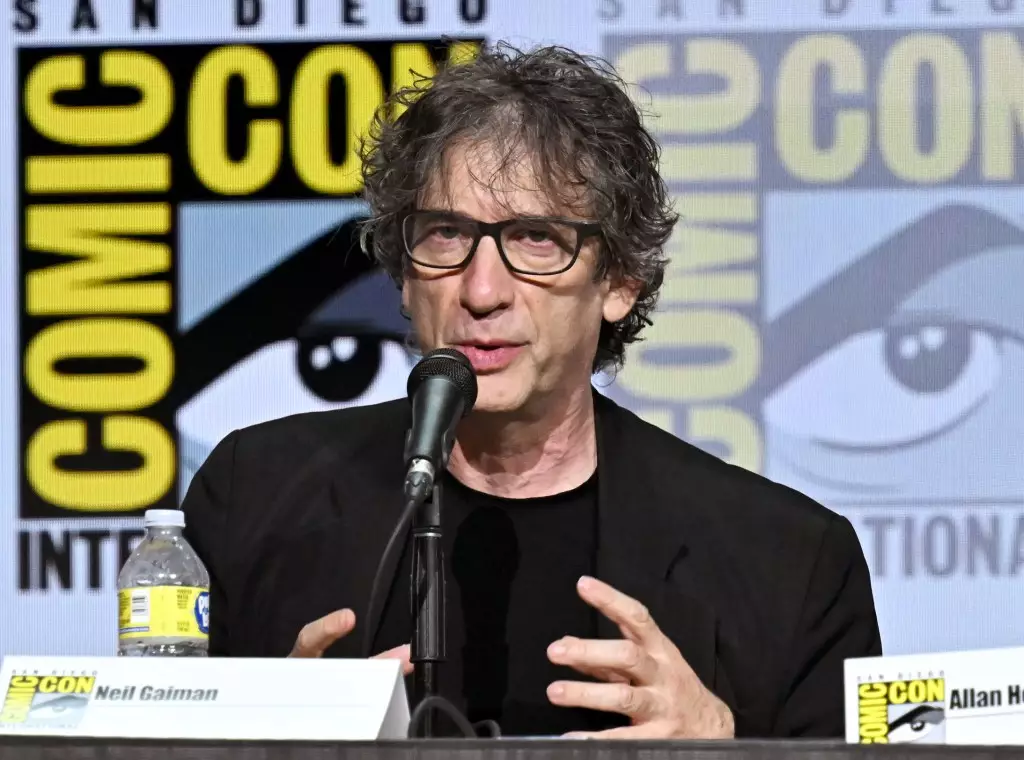In a stunning turn of events, Dark Horse Comics has severed ties with acclaimed author Neil Gaiman, canceling the much-anticipated comic series “Anansi Boys.” This decision stems from serious allegations of sexual assault against Gaiman, a well-respected figure in the literary world known for his groundbreaking works such as “Coraline” and “The Sandman.” Dark Horse’s announcement on X (formerly Twitter) detailed their commitment to addressing these allegations seriously, marking a significant moment in the publishing industry and in Gaiman’s career.
The allegations surfaced through Tortoise Media, which highlighted testimonies from four women who recounted their experiences with Gaiman dating back to July 2024. The gravity of these claims has ignited a broader discourse on accountability in the creative industries and the need for safe spaces for victims to share their stories without fear of repercussion. Public reaction has been mixed; while many have rallied in support of the women, there are also fans who are divided over Gaiman’s legacy, calling into question the divide between an artist’s work and personal life.
Gaiman’s Response: A Complex Narrative
In an attempt to address the swirling accusations, Gaiman took to his personal blog to share his perspective. His assertions of innocence were juxtaposed with reflections on his past behaviors, which he described as “emotionally unavailable” alongside an admission that he could have acted more thoughtfully. Gaiman insists he has never participated in non-consensual acts, yet he also acknowledges that he has made mistakes in his relationships. This mixture of denial and self-reflection complicates the narrative, making it challenging for the public to discern the truth of the situation.
The fallout from the allegations has reverberated beyond the cancelation of “Anansi Boys.” Plans for a full third season of “Good Omens,” the hit series co-created with Terry Pratchett, have been drastically altered, with the show set to conclude with a single 90-minute episode instead. Gaiman’s exit from a creative role in the project underscores the weight of the allegations and suggests potential long-lasting implications on partnerships within the industry. Additionally, the adaptation of his 2008 novel “The Graveyard Book” has been put on indefinite hold, further exemplifying how allegations can derail even the most established careers.
This incident serves as a cautionary tale for the creative industry, emphasizing the urgency for organizations to implement clear pathways for addressing allegations of misconduct. What happens to an artist’s body of work in light of serious claims? Should fans disengage from established narratives or acknowledge the multifaceted nature of an artist’s contributions? The debate raises pivotal questions about the separation of art and the artist, challenging audiences to reckon with their own beliefs regarding personal accountability versus creative legacy.
Gaiman expresses a willingness to take responsibility for past missteps while firmly rejecting the notion of having participated in abusive behavior. His nuanced admissions invite a broader conversation about emotional intelligence and relational awareness. It highlights the importance of fostering environments where individuals can openly discuss their experiences and seek clarity and healing. This turbulent chapter in Gaiman’s life serves as a stark reminder of the complexities surrounding fame, accountability, and the necessity of open discussions in the face of serious allegations.
As the creative community reflects on the ongoing fallout, the case of Neil Gaiman stands as a poignant reminder of the overlapping boundaries between personal conduct and public persona. For Gaiman, the future remains uncertain, with significant consequences looming over his career. The path forward requires both introspection and constructive dialogue, as society grapples with the echoes of past actions and the critical need for supportive structures that prioritize truth and accountability. The literary world watches closely as this story continues to unfold, underscoring the fragile relationships between creators, their works, and the audiences they serve.
